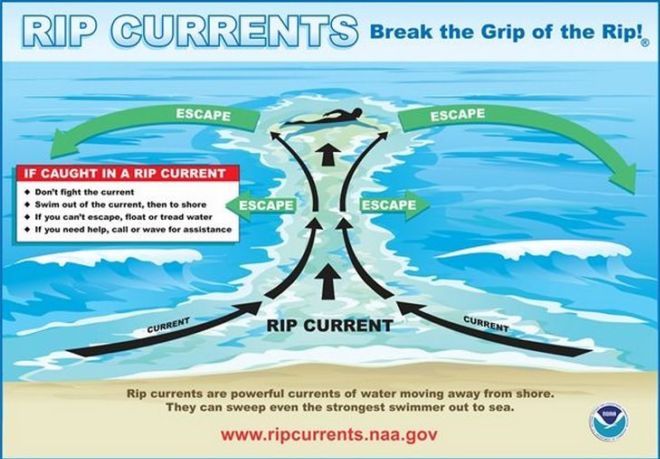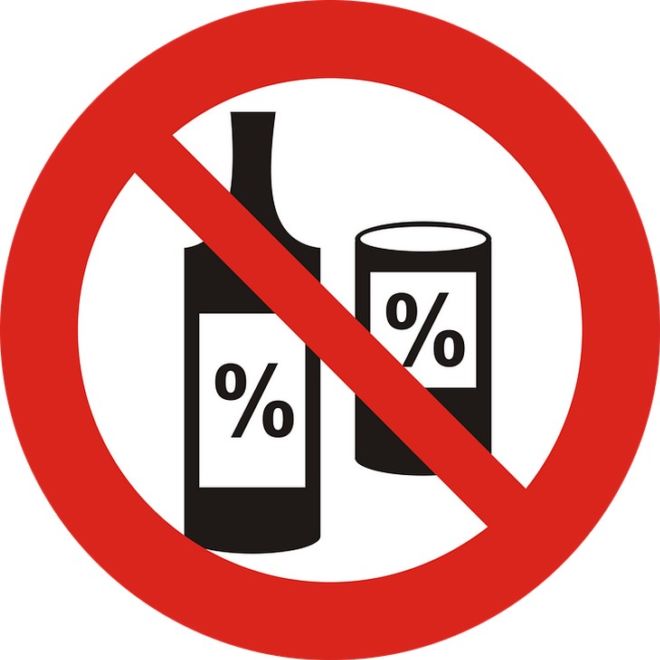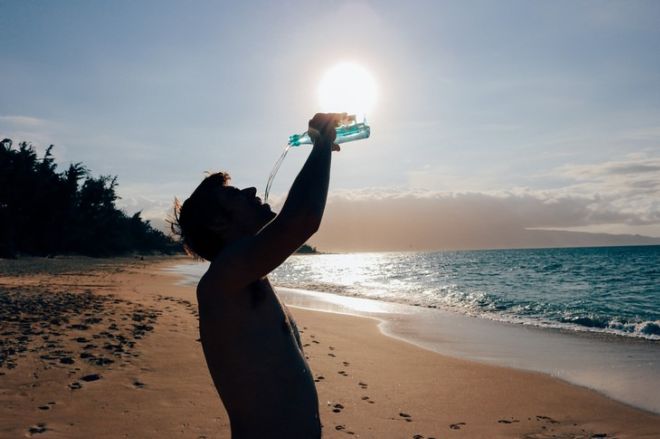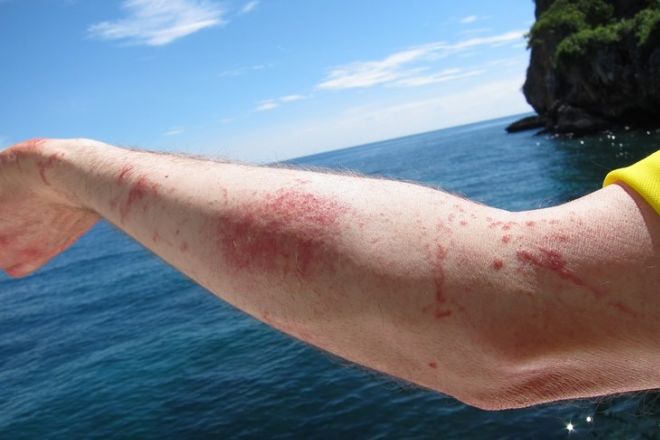9. Caught in a rip current? Keep your cool
Rip currents are one of the deadliest beach hazards. Rip currents are created when waves find resistance in the form of sandbars. When the wave recedes, it seeks a different, easier path, focusing all of its force into that particular path. People caught inside are flung powerfully far from shore. If that happens to you, do not swim to shore. The current is far stronger than you are, and you will tire and drown. Instead, drift along with the current and try to swim parallel to the shore. Only when you are safely out of the current can you try to make your way to shore.

10. Do not drink and swim
As we all know, drinking alcohol impairs judgment, a crucial faculty when one is swimming and needs to pay attention to possible hazards. As an aside, it also serves to accelerate dehydration.

11. Protect your skin
Use sunscreen. Apply the sunscreen roughly 30 minutes before going out, use generous amounts of cream and reapply it after strenuous exercise (such as swimming). While resting, choose a shady place.

12. Stay hydrated
Drink plenty of water when you’re at the beach or poolside. As above, keep to shady areas while resting. Dehydration and heat stroke are no jokes and cause dizziness, confusion, swelling, increased heart rate and more. In case of dehydration, move to shade immediately, remove unnecessary clothing and drink a lot of water.

13. Keep away from underwater animal life
The water is home to an immense variety of fauna, many of which could pose danger or discomfort for humans. When wading to a rocky area, do with closed shoes, those will both protect you from slipping, and keep your soles safe from corals, crabs, and other creatures. Do not attempt to touch any animal you find at the beach, they could be poisonous or have a nasty sting. This holds true to washed up jellyfish. Even a dead jellyfish can sting.

14. If stung, do not try to treat yourself
First off, except for vinegar, any folk remedy you might have heard of is probably hogwash. Secondly, if you don’t know what you’ve been stung by (and chances are, you don’t), you don’t know what the correct treatment for it is. Pouring random stuff on a sting could seriously aggravate the sting, cause an allergic reaction, or speed up the working of the venom (in the case the creature in question is poisonous). Instead, call a lifeguard and seek medical attention.

Beach SafetyCruiseLifeguardOceanSafe Vacation







